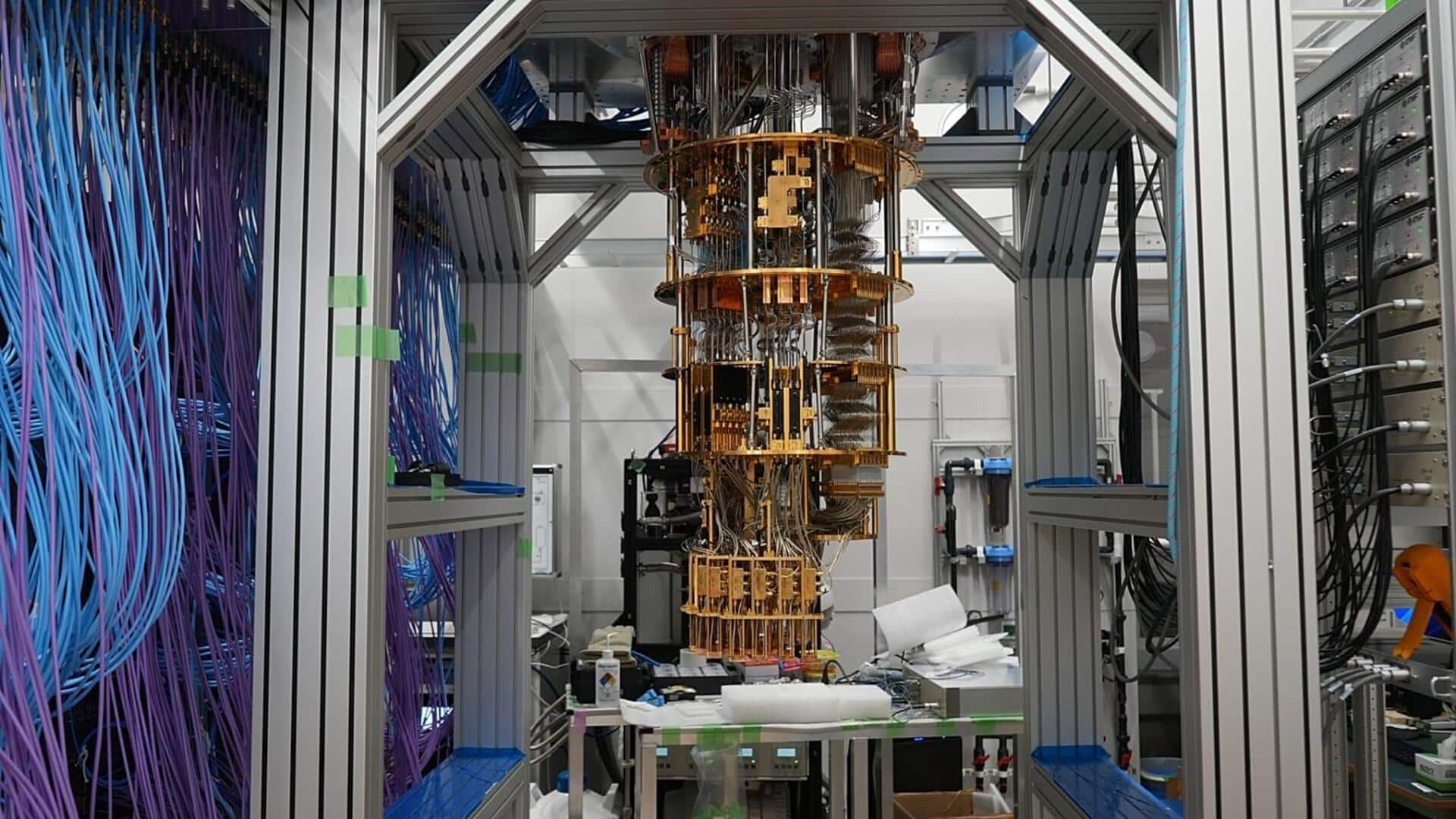
Japan launches first fully domestic quantum computer
What's the story
Japan has unveiled its first-ever homegrown quantum computer, a major milestone in the country's tech journey. The groundbreaking system was activated on July 28 at the University of Osaka's Center for Quantum Information and Quantum Biology (QIQB). Unlike previous models that relied on imported components, this new system is entirely built with domestic technologies. It also runs on an open-source software developed in Japan, called Open Quantum Toolchain for Operators and Users (OQTOPUS).
Tech specs
The system uses a chip with superconducting qubits
The new quantum computer uses a chip with superconducting qubits, or quantum bits. These are derived from metals that show zero electrical resistance when cooled to temperatures near absolute zero. The chip was developed by RIKEN, a Japanese research institute. Other components of the system include a chip package from Seiken, magnetic shield, infrared filters, bandpass filters, low-noise amplifier and various cables. All these parts are housed in a dilution refrigerator to maintain extremely low temperatures necessary for quantum computing.
Software suite
The computer runs on an open-source software
OQTOPUS is a suite of open-source tools containing everything needed to run quantum programs. It features a core engine and cloud module, as well as graphical user interface (GUI) elements. The software is designed to be built on top of a Quantum Processing Unit (QPU) and quantum control hardware. This combination of advanced technology and innovative software makes Japan's first homegrown quantum computer a truly unique addition to the global tech landscape.
Future prospects
Quantum computers could revolutionize many industries
Quantum computers have the potential to outperform the world's fastest supercomputers in solving complex problems. They can perform calculations and simulations far beyond current technological capabilities. Possible applications include drug discovery, traffic management in cities, and optimizing delivery routes for logistics companies. However, there are still many challenges to overcome such as high error rates during calculations. Most research is currently focused on quantum error correction (QEC).